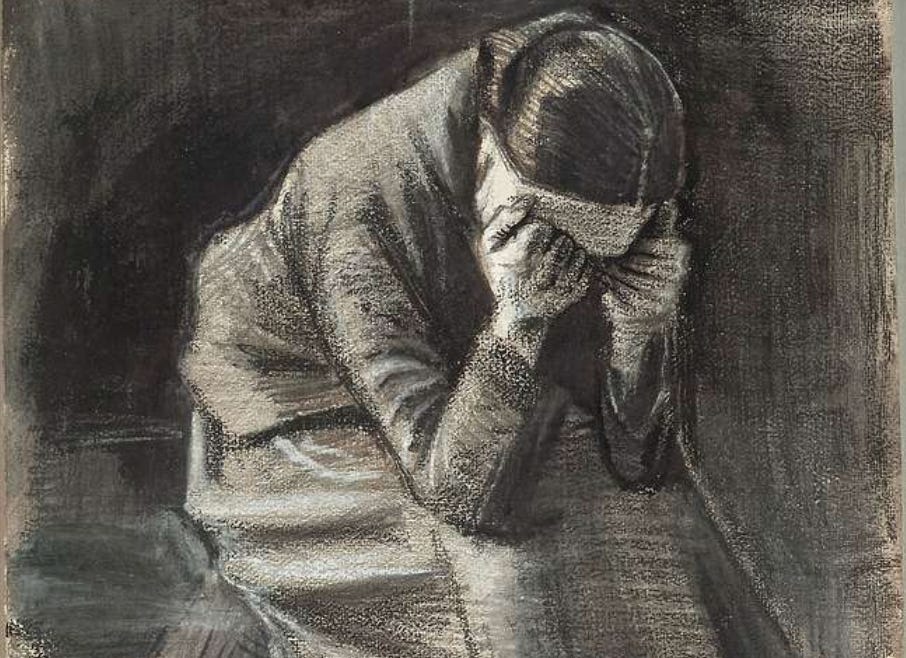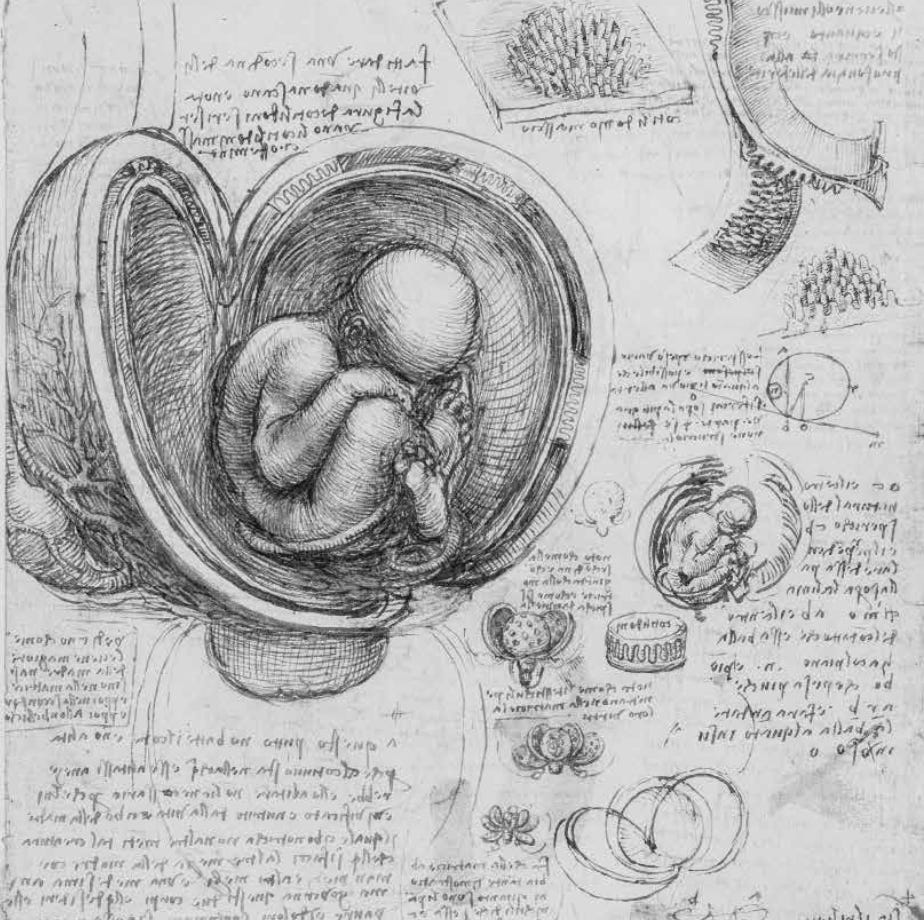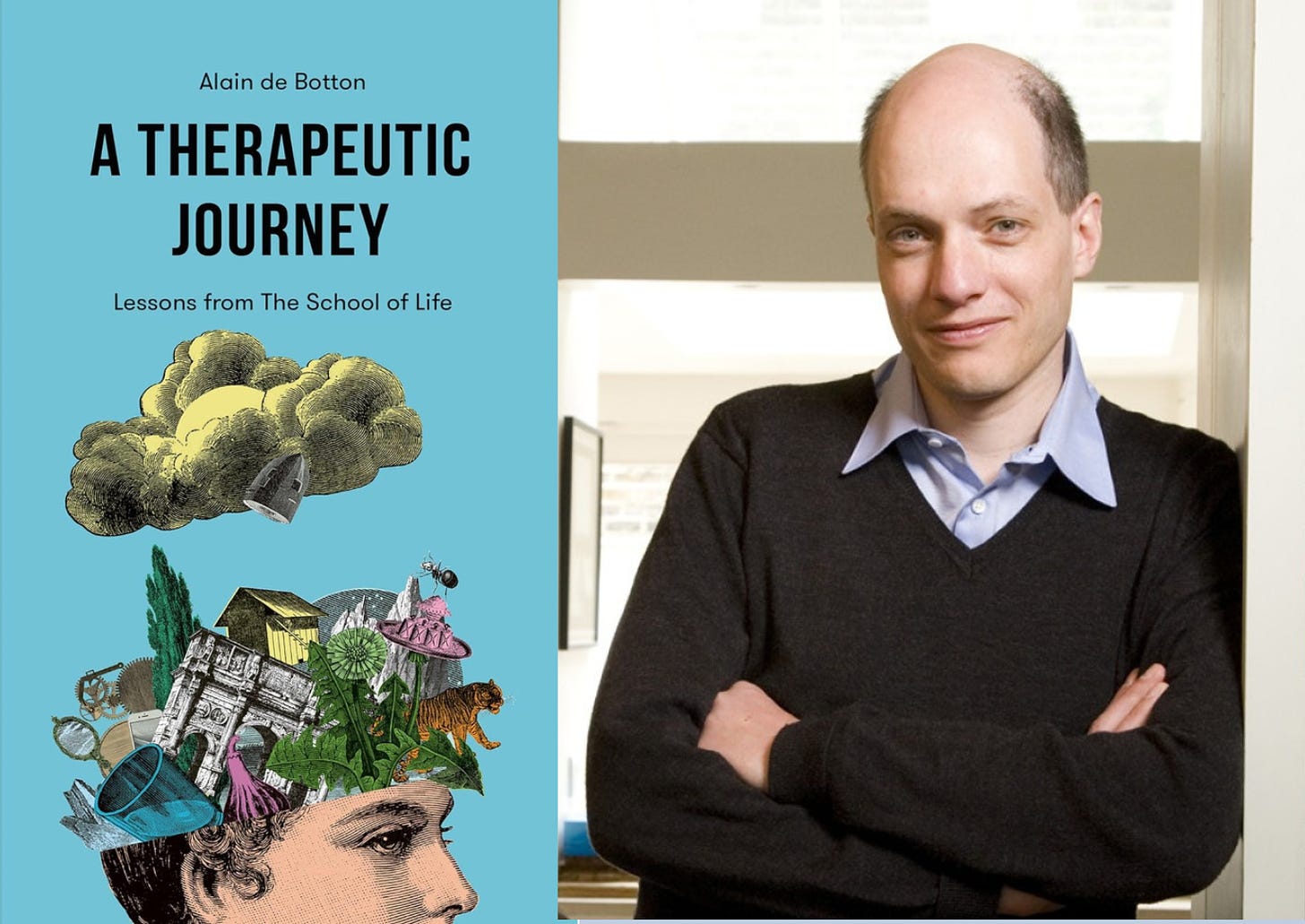Prompt 266. Permission to Cry
Alain de Botton of the School of Life on the benefits of a proper sob
Hi friend,
For the past two weeks, I’ve been dogged by the impulse to cry—not just daily, but often morning, noon, and night. I think it’s largely due to the state of the world. I wonder if it’s like this for you, too—that suffering on such a scale leaves you raw and porous, so that anything, insignificant or profound, bad or good, can prompt you to tears.
Like last Sunday, I was in Los Angeles for a screening of American Symphony, and I met a man who’d reached out to me just after my second bone marrow transplant and shared that his sister, who was in her twenties, had been diagnosed with cancer. He told me she had since passed away, and hearing this, I wanted to weep. Later that afternoon, utterly exhausted and ready to be home, I headed to the airport, only to discover that my flight was delayed by several hours. Out of fatigue and frustration, I almost burst into tears right there in the terminal.
Another example: Last week I had a bone marrow biopsy, and when I went to the patient portal to check my results, I was so terrified I almost broke down. But then I clicked on the results, and I learned that my chimerism (meaning the ratio of my brother’s cells to mine), which my previous biopsy showed had dropped a bit, was back up to 100%. Suddenly I felt myself welling with tears of relief. Soon after it happened again, this time out of rage: when I went to pick up a new medication at the pharmacy and was told that, though I’d made many calls both to my doctor and my insurance company to ensure it was approved, that it had not been. (Medical bureaucracy might just do me in.)
The list goes on, a strange assemblage of big and relatively insignificant things, of poignant personal moments and weighty worldly sorrows: when Sunshine—or the little pterodactyl, as I’ve been calling her after the emergence of a high-pitched bark-whine—began gnawing on the legs of my new kitchen table, then again when River started grooming the little pterodactyl so sweetly, gently licking her ears and face. When I facetimed with a dear friend in Israel. When I saw the video of the Palestinian doctors refusing to evacuate, putting their own lives at great risk for the babies in their ICU. When I read a community member named Ilene’s comment in last week’s newsletter, where she shared “The Prayer of the Mothers,” composed by Rabbi Tamar Elad-Appelbaum and Sheikha Ibtisam Mahamid, a few lines of which go like this:
For these things I weep, my eye, my eye runs down with water
For our children crying at nights,
For parents holding their children with despair and darkness in their hearts
For a gate that is closing, and who will open it before the day has ended?
And with my tears and prayers which I pray
And with the tears of all women who deeply feel the pain of these difficult days
I raise my hands to you, please God have mercy on us
Hear our voice that we shall not despair
In these specific instances and maybe a dozen more, I have felt the urge to cry but have resisted it; my own relationship to the act is complicated. I equate crying with weakness, and I’ll do everything in my power not to cry in front of anyone, even my closest friends and my family. Because I resist it so much, I’ve come to worry that if I start crying, I won’t be able to stop.
Yet I reserve those worries and judgments entirely for myself. I am so moved when others cry in front of me, because it feels like an honor for them to be vulnerable with me in that way. I see it as an opportunity to support them, to show my love for them. It makes me wonder if my refusal to let anyone see me cry is actually serving me. Earlier this week, a friend posted these lines by Audre Lorde: “I’ve been told that crying makes me seem soft and therefore of little consequence. As if our softness has to be the price we pay for power, rather than simply one that’s paid most easily and most often.” It made me think, That price is too high.
Our complicated, evolving relationship with crying is the subject of today’s guest essay, “Curling up in a Ball” by the brilliant philosopher and co-founder of The School of Life, Alain de Botton. Excerpted from his newest book, A Therapeutic Journey—which just came out this month and is a collection of essays designed to help us find our way back to connection, warmth, and joy—it’s a mediation on the wisdom of children and the comfort, catharsis, and even clarity that tears can bring. In these difficult days, may it be a balm leading us away from despair and toward hope.
With love,
Suleika
P.S. If you want a song to accompany your meditation on crying, here’s a favorite by Jon, which is on my Spotify playlist “Sad Girl Mixtape”—further evidence of my complicated relationship to tears.
Some Items of Note—
If you missed it, we posted our Notes from the Hatch: On Equinoxes, Eclipses, and Equanimity. It was a transcendent hour—as one community member wrote, the topic “made me feel part of the immense continuity of time, a joining with the ages, and it was impossible to feel alone.” Find a recap along with the reading and prompts here.
Every Friday in the Isolation Journals Chat, we send up our small joys in a chorus of collective gratitude. This week I wrote about a visit from my beloved Isolation Journals comrade Carmen—which was full of joys, big and small. To add yours and be buoyed by others too, click here!
Prompt 266. Curling up into a Ball by Alain de Botton
We cause ourselves a lot of pain by pretending to be competent, all-knowing, proficient adults long after we should, ideally, have called for help. We suffer a bitter rejection in love, but tell ourselves and our acquaintances that we never cared. We hear some wounding rumors about us but refuse to stoop to our opponents’ level. We find we can’t sleep at night and are exhausted and anxious in the day, but continue to insist that stepping aside for a break is only for weaklings.
We all originally came from a very tight ball-like space. For the first nine months of our existence, we were curled up, with our head on our knees, protected from a more dangerous and colder world beyond by the position of our limbs. In our young years, we knew well enough how to recover this ball position when things got tough. If we were mocked in the playground or misunderstood by a snappy parent, it was instinctive to go up to our room and adopt the ball position until matters started to feel more manageable again. Only later, around adolescence, did some of us lose sight of this valuable exercise in regression and thereby began missing out on a chance for nurture and recovery.
Dominant ideas of what can be expected of a wise, fully mature adult tend to lack realism. Though we may be twenty-eight or forty-seven on the outside, we are inevitably still carrying within us a child for whom a day at work will be untenably exhausting, a child who won’t be able to calm down easily after an insult, who will need reassurance after every minor rejection, who will want to cry without quite knowing why and who will fairly regularly require a chance to be “held” until the sobs have subsided.
It is a sign of the supreme wisdom of small children that they have no shame or compunction about bursting into tears. They have a more accurate and less pride-filled sense of their place in the world than a typical adult: They know that they are only extremely small beings in a hostile and unpredictable realm, that they can’t control much of what is happening around them, that their powers of understanding are limited, and that there is a great deal to feel distressed, melancholy, and confused about.
As we age, we learn to avoid being, at all costs, that most apparently repugnant and yet in fact deeply philosophical of creatures: the crybaby. But moments of losing courage belong to a brave life. If we do not allow ourselves frequent occasions to bend, we will be at far greater risk of one day fatefully snapping.
When the impulse to cry strikes, we should be grown up enough to cede to it as we did in our fourth or fifth years. We should repair to a quiet room, put the duvet over our head, and allow despondency to have its way. There is in truth no maturity without an adequate negotiation with the infantile and no such thing as a proper grown-up who does not frequently yearn to be comforted like a toddler.
If we have properly sobbed, at some point in the misery an idea however minor will at last enter our mind and make a tentative case for the other side: We’ll remember that it would be quite pleasant and possible to have a very hot bath, that someone once stroked our hair kindly, that we have one and a half good friends on the planet and an interesting book still to read and we’ll know that the worst of the storm may be ebbing.
Your prompt for the week:
Consider your relationship to crying. Do you surrender to it, or do you resist it? Do you find yourself feeling particular emotions around it—like shame or frustration, or maybe a sense of acceptance or relief? Write about any emblematic stories or feelings you have around crying, and if you might benefit from a different perspective on a proper sob.
Today’s Contributor—
The School of Life is a global organization helping people lead more fulfilled lives. Through its range of life-changing books, gifts, and stationery, they aim to prompt more thoughtful natures and help everyone to find resilience and self-understanding. The School of Life Press brings together the thinking and ideas of The School of Life creative team under the direction of series editor, Alain de Botton. Get your copy of A Therapeutic Journey here.
For more on how we get through, see—
A Creative Heart-to-Heart, where my husband Jon Batiste and I answer questions about life and the creative process and share about how we use a creative practice to marry our sorrows and our joys
On Conflict and Peace, an interview with the author of The Art of Gathering and my friend Priya Parker, where we talked about celebrating our differences and how humanizing our adversaries is a crucial step on the path to peace
Love in a Time of Cancer (Part 2), an installment of Dear Susu where my beloved mother Anne Francey and I tackle that forever question: “How do we get through?”










Dear friend Suleika, this is unbelievably timely. Unable to sleep, I am up and already walked by darling dog at 3am. I have been sitting here, candles lit having a cry ( which I do daily now since the death of my beloved husband ). Here you are and “Cry” one of my favorites of John’s. No coincidence here. I thank you from the bottom of my heart. So happy for your good bone marrow results. Know that you both are loved and appreciated by an unknown friend here. Thank you dear one.
Patti Redick
This one really hits home. It seems like we’re all going through the same kind of moment in life right now and there’s a sense of relief that none of us are alone in this sadness. I wrote about how to grieve this week and now reading this feels like a healing balm. Thank you 🤎🙏🏾